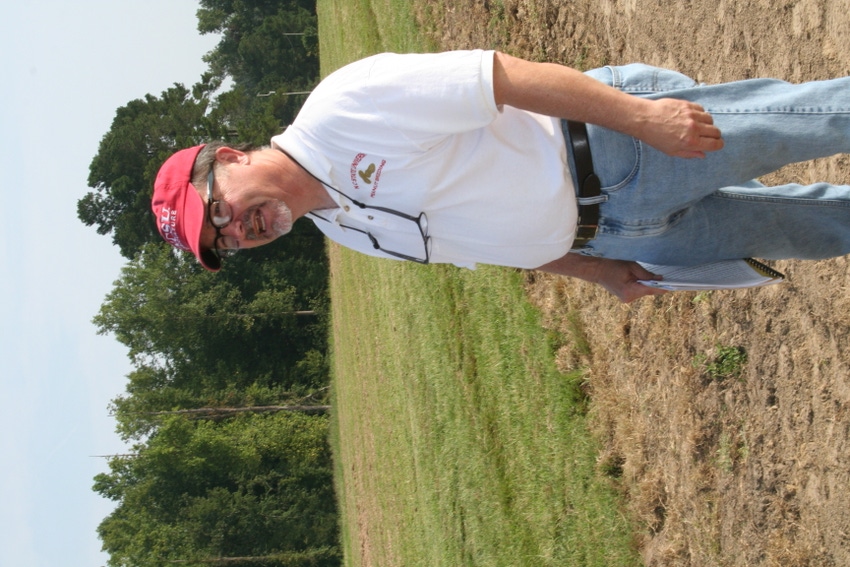September 16, 2013

Peanut growers in the Southeast who make any money this year probably owe a part of it to North Carolina State University Plant Breeder Tom Isleib.
He is the ‘father’ of Bailey and Sugg varieties of peanuts and without these highly disease resistant varieties, this year’s peanut crop could have been a major disaster.
Isleib knows a lot about potential disasters.
Now three years back, he was enjoying a fishing trip on Lake Michigan — something he’d done many times in his native state. Then things went really bad. He had a stroke and for a good while whether he would survive hung in the balance between life and death.
Fortunately, Tom did survive and continues his drive to provide peanut producers in the U.S. with the best varieties available. Affable and unflappable, Isleib jokes, “Since the stroke I talk a little funny and I forget things. Come to think of it, I did that before the stroke.”
On a more serious note, Isleib says the team of researchers in his peanut breeding program at North Carolina State, and his colleagues there have been an inspiration that has helped keep him working. “North Carolina State has always provided me with the technicians I’ve needed to do my work. Without the help of Susan Copeland, who works in my breeding program, I don’t know what I would have done in working through my medical problems. All my colleagues have been very understanding and very helpful throughout my return to work,” he says.
One of those colleagues, David Jordan beamed in admiration as Isleib talked about Bailey and Sugg and new peanut varieties coming down the pipeline at a recent field day in North Carolina.
Saved the day this year
Jordan who is the peanut specialist in North Carolina, noted that Isleib’s contribution to the peanut industry has never been more important than this year. “Without Bailey and Sugg, which came from his breeding program, a lot of peanut growers would have been overwhelmed with disease pressure because of the excessive rain we had pretty much throughout the state this year,” Jordan says.
Just by visiting with Tom Isleib recently during back to back field days in North Carolina and Virginia, a person would surely be impressed by his passion for developing new peanut varieties to help growers.
If anything his pride in having provided Bailey and Sugg to growers is exceeded by his passion for two new high oleic varieties, Sullivan and Wynne that are currently under evaluation in Maria Balota’s PVQE (Peanut Variety and Quality Evaluation) program at Virginia Tech.
Already gearing up for the future, Isleib says he’s confident virtually all the Virginia type peanuts grown in the future will be high oleic varieties. In addition to Sullivan and Wynne, he says he is also looking at a high oleic Bailey variety.
From literally thousands of potential varieties, Isleib has years labored in relative anonymity to find the perfect ones that combine production characteristics that growers need to produce top yields and one that buyers want for use in myriad peanut products.
Just surviving such a medical disaster is reason enough to be grateful, but Tom Isleib has taken on his recovery and return to a high level of professional performance as something akin to a pursuit of the Holy Grail.
His story is truly a profile in courage and one that peanut growers across the country should recognize and reward.
About the Author(s)
You May Also Like




